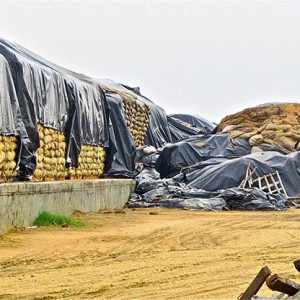March 25: Water Systems in Middle East Conflict Areas
The Global Rundown |
Water systems in places like Syria and Gaza are critically damaged and causing health risks, while militants continue to target water infrastructure in the Middle East, the Red Cross says. In the United States, Duke Energy claims it will fight a record-setting fine for groundwater pollution in North Carolina, and residents in Flint, Michigan, don’t believe their water is safe. Canada is neglecting the protection of fresh water, a new report found. Pacific Island countries say climate finance is key to a Paris climate change deal.
“Heavy fighting and direct targeting have destroyed water pipes and power lines, leaving this vital resource away from hundreds of millions of people that are at great risk of water-borne diseases.”–Robert Mardini, Head of Operations for the Middle East at the International Committee of the Red Cross, on the organization’s finding that fighting in the region has severely damaged many water and wastewater treatment systems. (Reuters)
By The Numbers |
$400 Amount per month one family in Flint, Michigan, pays for bottled water to avoid using the city’s tap water. Residents say the water has odor and color issues, and fear it is causing ill health effects despite assurances from city officials that it is safe. The New York Times
$25.1 million Amount North Carolina fined Duke Energy earlier this month for groundwater pollution at one of its power plants. The company said Tuesday that it will contest the fine. Charlotte Observer
Science, Studies, And Reports |
Canada’s federal government has systematically neglected the adequate protection of freshwater supplies in the country, including the Great Lakes, according to a new report from the social action organization Council of Canadians. The report says the government “bought into the myth of water abundance”. Council of Canadians
On The Radar |
Pacific Island nations renewed their push for climate mitigation and adaptation funding, which they say is vital for success on a new global climate change deal in Paris this year. Climate disasters, like Cyclone Pam that recently hit Vanuatu, cost five percent of the Marshall Islands’ national GDP last year, according to the country’s foreign minister. Inter Press Service
A news correspondent for Circle of Blue based out of Hawaii. She writes The Stream, Circle of Blue’s daily digest of international water news trends. Her interests include food security, ecology and the Great Lakes.
Contact Codi Kozacek





Leave a Reply
Want to join the discussion?Feel free to contribute!